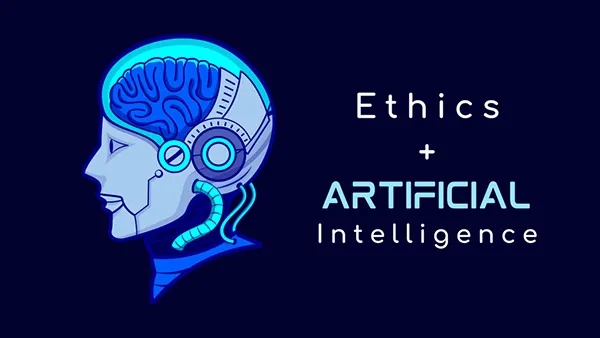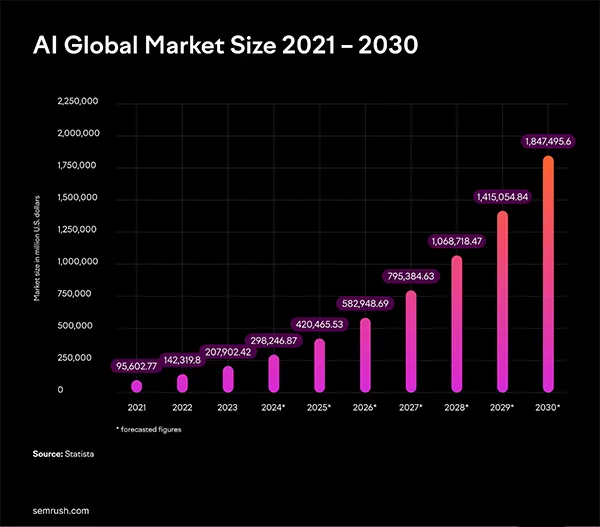
In the past couple of years, artificial intelligence (AI) has pretty much changed how things are done across many industries.
From simple automation of tasks to full-blown machine learning-based analysis and predictions, AI has brought about changes in how things were done in the past.
But, in a time where everything is run by AI, we also need to think about all the ethical implications that come with it.
Artificial intelligence cannot fully take the place of human logic and emotion.
After all, some things cannot be decided by a machine alone.
You need to take a pause and think about all the ethical issues with using these technologies in your decision-making process.
In this article, we will dive into the complexities of algorithmic decision-making in artificial intelligence and see how we can overcome and use them to our advantage.
DID YOU KNOW?
Fifty-four percent of companies had used generative AI in their business by November 2023—just one year since ChatGPT was released.
And, following its release in November 2022, ChatGPT reached over a million users in five days and 100 million users within two months. This made it the fastest-growing consumer app ever at the time.
Artificial intelligence needs to be designed in such a way that it can not only respect human rights and freedom but also promote transparency and accountability.
For example, Justdone’s AI tools are practically made to enhance productivity while still sticking to its ethical guidelines.
These tools are made to serve human purposes, not the other way around.
But what does ethical artificial intelligence actually mean?
In practice, this means that we need to create AI systems that are fair and free from any biases that are discriminatory or can cause harm to someone.
Bias is one of the biggest issues when we look at the ethical issues that are plaguing AI these days.
Be it gender, race, or socioeconomic, these prejudices can very easily be trained into artificial intelligence through its data libraries.
Just think about it.
What if you’re applying for a job and the AI practically rejects you not because you’re unqualified but because it has been trained to reject specific demographics or minorities?
Sounds unfair, right?
This can prove to you just how important it is to keep biases out of artificial training models.
And, the solution to this is very simple actually.
When training an AI model, just audit and update all the data for any biases to make sure that it can make decisions based on relevant criteria and not any historical biases.
You know, in the present, we mostly depend heavily on the Internet for most of our day-to-day tasks.
This raises some questions about our privacy.
In an online space, anything from your browsing history to your shopping list and other personal data becomes a commodity that companies can easily exploit or sell for profit.
But add AI into the mix and it can pretty much predict all your likes and dislikes for what you’ll buy next.
This tells you just how AI is transforming the business industry.
So, how can you go about making sure that our personal data is not used to train artificial intelligence models in any way?
Well, the answer to this lies in implementing good data protection laws and ethical AI design that will prioritize user consent and data minimization.
It’s mostly about finding the balance between using data for innovation while still respecting an individual’s privacy rights.
AI can make decisions that can have a huge impact on our lives and without any transparency, it’s very hard to trust these decisions.
And hey, it’s not just transparency, accountability is just as important too.
What if something goes wrong and you need someone to be responsible?
This dual approach ensures that AI models are just tools for education and convenience and are not used to cause harm.
So, despite all the challenges that AI has brought into our lives, it still has the potential to be of help to humanity.
From helping in healthcare with its predictive analysis to making education more accessible with its ability to give a custom learning experience to each student, AI can benefit us in many ways.
The main thing here is to make sure that these technologies are used and developed in a way that aligns with our ethical standards.

The global artificial intelligence (AI) market was valued at $150.2 billion in 2023 and is expected to reach $1,345.2 billion by 2030.
As it continues to evolve, we need to train it more ethically and transparently.
Developers, regulators, and users need to make a constant effort to define what AI can and cannot do.
Since it learns from data, we need to actively make sure that the data we feed into it is not biased.
Artificial intelligence is the future of content optimization.
We need to keep accountability and privacy in mind when designing AI models.
You know, ethical AI is not a finish line but a journey that includes continuous learning, adjustment, and ultimate vigilance.
We need to design artificial intelligence models so that they are free from biases. This means that it can make better and more fair decisions without being influenced by any bias.
Ethics are like the commandments that we can use to make sure that this technology is developed and used in a more responsible way.
You need to think about the full range of human needs in AI design, for example, by promoting safety, privacy, trustworthiness, fairness, transparency, accountability, and inclusion in society through AI technologies.”
